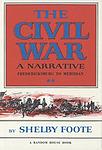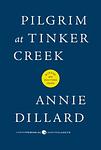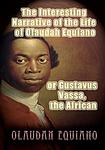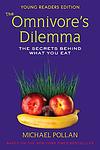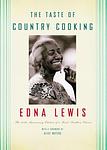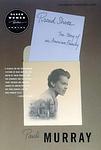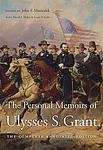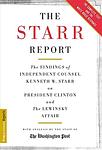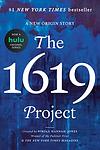The Greatest "Virginia, Nonfiction" Books of All Time
Click to learn how this list is calculated.
This list represents a comprehensive and trusted collection of the greatest books. Developed through a specialized algorithm, it brings together 300 'best of' book lists to form a definitive guide to the world's most acclaimed books. For those interested in how these books are chosen, additional details can be found on the rankings page.
Genres
"Virginia" as a category for books would encompass literature that is set in or inspired by the state of Virginia. This could include historical fiction, memoirs, biographies, and contemporary fiction that explores the culture, history, and landscape of Virginia. The category may also include works by Virginia-based authors or those who have a strong connection to the state. Overall, "Virginia" books would offer readers a unique perspective on the rich and diverse history and culture of this southern state.
Countries
Date Range
Reading Statistics
Click the button below to see how many of these books you've read!
Download
If you're interested in downloading this list as a CSV file for use in a spreadsheet application, you can easily do so by clicking the button below. Please note that to ensure a manageable file size and faster download, the CSV will include details for only the first 500 books.
Download-
1. The Civil War by Shelby Foote
This comprehensive three-volume series provides an in-depth and detailed narrative of the American Civil War. It encompasses the political, social, and military aspects of the war, offering a balanced view of both the Union and Confederate sides. The series also delves into the personal experiences of key figures, including generals and soldiers, as well as civilians affected by the war. This work is known for its meticulous research, vivid descriptions, and engaging storytelling style.
-
2. Pilgrim at Tinker Creek by Annie Dillard
This book is a personal narrative of the author's explorations near her home at Tinker Creek in Virginia's Blue Ridge Mountains. The narrative is filled with detailed observations on nature and philosophical musings. It reflects on themes of solitude, the presence of God in nature, and the interconnectedness of life. The author's deep reflections and contemplations about the mysteries and beauty of the world make it a profound meditation on the natural world.
-
3. Up from Slavery by Booker T. Washington
The book is an autobiographical account of a former slave who rises to become a prominent educator and speaker. It chronicles his journey from enslavement during his childhood, through his struggles for education and his founding of Tuskegee Institute in Alabama. The narrative emphasizes the importance of education, hard work, and self-reliance as the keys to African American advancement, and provides a firsthand perspective on post-Civil War American South.
-
4. The Interesting Narrative of the Life of Olaudah Equiano by Olaudah Equiano
This autobiographical book tells the story of an African man who was kidnapped from his homeland as a child and sold into slavery. The narrative follows his life as he is transported across the Atlantic, sold to various masters, and eventually purchases his own freedom. The book provides a detailed account of the horrors of the Middle Passage and the inhumane conditions of slavery, while also serving as a powerful testament to the human spirit's ability to overcome adversity.
-
5. R. E. Lee by Douglas Southall Freeman
"R. E. Lee" is a comprehensive biography that provides a detailed account of the life of the famed Confederate General Robert E. Lee. The book dives deep into his personal life, his military strategies, and his role in the American Civil War, offering a balanced and nuanced portrayal of Lee. It also explores his relationships, his character, and his post-war life, giving readers a well-rounded understanding of this significant figure in American history.
-
6. The Immortal Life of Henrietta Lacks by Rebecca Skloot
The book tells the story of Henrietta Lacks, a poor African American tobacco farmer whose cells, taken without her knowledge in 1951, became one of the most important tools in medicine, vital for developing the polio vaccine, cloning, gene mapping, and more. Henrietta's cells have been bought and sold by the billions, yet she remains virtually unknown, and her family can't afford health insurance. The book explores the collision between ethics, race, and medicine; of scientific discovery and faith healing; and of a daughter consumed with questions about the mother she never knew.
-
7. The Omnivore's Dilemma by Michael Pollan
The book delves into the question of what we should have for dinner. It explores the paradox of the omnivore's dilemma, detailing the food chains that link farm to table, and explaining how the industrial revolution has changed the way we eat. The book also discusses the implications of our modern diet on our health and the environment, suggesting that we should return to more traditional methods of food production and consumption. It advocates for a more conscious and sustainable approach to eating.
-
8. Jefferson and His Time by Dumas Malone
"Jefferson and His Time" is a comprehensive six-volume biography that explores the life and legacy of Thomas Jefferson, the third president of the United States. The series delves into his political philosophy, his role in the formation of America, his relationships, and his personal life. It also examines his contributions to the United States, including his work as the principal author of the Declaration of Independence, his time as president, and his founding of the University of Virginia. The biography is a detailed and insightful examination of one of the most influential figures in American history.
-
9. The Taste Of Country Cooking by Edna Lewis
This book is an evocative tribute to the author's childhood in a small farming community in Virginia, where seasonal and local foods were an integral part of the cultural experience. It intertwines personal recollections with recipes that capture the essence of Southern cuisine, emphasizing the rhythm of nature, the importance of community, and the pleasures of sharing good food. The narrative is as much a memoir as it is a cookbook, offering a window into a way of life that cherishes culinary traditions, the land, and the changing seasons, with dishes that range from simple to celebratory, all rooted in the heritage of American cooking.
-
10. The Adams Jefferson Letters by Lester J. Cappon
This book is a comprehensive collection of the correspondence between two of America's founding fathers over the course of their long and storied lives. Through their letters, readers gain an intimate glimpse into the deep friendship, occasional rivalry, and mutual respect that existed between these two men, both of whom played pivotal roles in the formation of the United States. The correspondence covers a wide range of topics, including politics, philosophy, and personal matters, offering invaluable insights into the early years of American independence, the challenges of governance, and the intellectual landscape of the 18th century. This collection not only sheds light on the personal dynamics between these influential figures but also provides a rich historical context for understanding the foundational principles of the American republic.
-
11. Proud Shoes by Pauli Murray
"Proud Shoes" is a poignant memoir that chronicles the complex history of an African American family through the lens of the author's own lineage. The narrative delves into the lives of the author's grandparents, delving into the antebellum South, the impact of the Civil War, and the enduring legacy of slavery and racial discrimination. The book weaves personal stories with broader historical events, offering a rich tapestry of resilience, struggle, and the quest for racial equality. It is a testament to the strength of family bonds and the author's quest to understand and honor her ancestors' experiences and the social forces that shaped their lives.
-
12. Thirty Years As A Slave And Four Years In The White House by Elizabeth Keckley
This memoir offers a poignant and powerful account of an African American woman's life journey from the harsh realities of enslavement to her emancipation and subsequent role as a successful dressmaker and confidante to the First Lady of the United States during the Civil War era. The narrative provides a unique insider's perspective on daily life in the White House, as well as intimate observations of presidential family dynamics during one of the nation's most tumultuous periods. Her story is one of resilience and determination, highlighting the struggles and achievements of a woman who navigated the complex intersections of race, gender, and politics in 19th-century America.
-
13. Personal Memoirs of Ulysses S. Grant by U. S. Grant
This book is a first-person account of the life and military career of a notable American Civil War general who later became the 18th President of the United States. It covers his childhood, his time at West Point, his experiences in the Mexican-American War, and his crucial role in the Civil War. The memoir also delves into his presidential years, offering a unique perspective on historical events from a key player's point of view. It is widely praised for its honesty, insight, and clear, straightforward style.
-
14. The Starr Report by Kenneth W. Starr
This book is a detailed report on the investigation of a sitting U.S. President, focusing on his extramarital affairs and the subsequent perjury and obstruction of justice charges. The report, which was conducted by an independent counsel, became a significant political and cultural event, leading to impeachment proceedings. It includes explicit details about the President's personal life, and its release sparked widespread debate about the boundaries of public and private life for political figures.
-
15. Growing Up by Russell Baker
"Growing Up" is a memoir that recounts the author's experiences growing up in America during the Great Depression and World War II. The author shares his journey from a poverty-stricken childhood in Virginia to becoming a successful journalist in New York. The narrative is filled with engaging anecdotes about his family, particularly his strong-willed mother, and the struggles they faced during these challenging times. The memoir is an exploration of the author's family history, personal growth, and the socio-political landscape of mid-20th century America.
-
16. River Time by Janet Lembke
"River Time" is a lyrical exploration of the author's intimate connection with the natural world, particularly the rivers and waterways of the American South. Through a series of evocative essays, the narrative weaves personal anecdotes, historical reflections, and keen observations of the flora and fauna that inhabit these aquatic ecosystems. The author's prose invites readers to contemplate the complex relationships between humans and nature, the passage of time, and the importance of preserving these vital, yet vulnerable, environments. The book serves as both a meditation on the transformative power of rivers and a call to recognize and respect the rhythms of the natural world.
-
17. Darkness Visible by William Styron
"Darkness Visible" is a memoir that explores the author's personal struggle with depression. It provides an intimate account of his descent into a severe and debilitating state of depression, his contemplation of suicide, and eventual recovery. The book offers a candid and insightful perspective on the nature of depression, its impact on the individual, and the process of healing and recovery, shedding light on a topic often shrouded in stigma and misunderstanding.
-
18. A Woman's Civil War by Cornelia Peake McDonald
This book is a personal account of a woman's experiences during the American Civil War, offering a detailed and poignant perspective on the hardships and turmoil of the era. The narrative is drawn from the diaries and letters of the author, who lived through the conflict and witnessed its impact on her family, community, and way of life. Her writing provides a unique window into the domestic and social challenges faced by women, as well as the broader political and military upheavals of the time, capturing the emotional and physical landscape of a country divided by war.
-
19. Genie: A Scientific Tragedy by Russ Rymer
This book delves into the heart-wrenching story of a young girl who was a victim of severe neglect and isolation for the first thirteen years of her life, leading to significant psychological and developmental issues. Discovered by authorities in the 1970s, she became the subject of intense research and debate within the scientific community, particularly in the field of language acquisition. The narrative critically examines the ethical implications of her treatment by researchers and foster care systems, as well as the broader questions about nature versus nurture and the limits of rehabilitation. The girl's tragic circumstances provide a unique case study into human development and the resilience of the human spirit in the face of unimaginable adversity.
-
20. The Writings Of Thomas Jefferson by Thomas Jefferson
This book is a comprehensive collection of the writings of Thomas Jefferson, one of the Founding Fathers of the United States and the third President. It includes a wide range of his works, from his early political writings, drafts of the Declaration of Independence, letters, and presidential papers to his private notes and opinions on various subjects. The compilation provides insight into Jefferson's thoughts and philosophies on government, human rights, and education, reflecting his profound influence on the shaping of American democracy. Through these writings, readers gain a deeper understanding of Jefferson's intellectual and political legacy.
-
21. Hold Still: A Memoir With Photographs by Sally Mann
In "Hold Still: A Memoir With Photographs," the author delves into the rich tapestry of her life, intertwining personal narrative with evocative photography to explore themes of family, mortality, and the storied landscape of the American South. Through a collection of intimate snapshots, candid anecdotes, and unearthed family history, the memoir offers a profound reflection on the power of memory and artistry. It reveals the complexities of the author's relationships and her experiences as an artist, while confronting the controversies that have often surrounded her work. The book stands as a poignant testament to the enduring impact of heritage and the transformative nature of photography.
-
22. Grant by Ron Chernow
"Grant" is a comprehensive biography of the 18th President of the United States, Ulysses S. Grant. Written by Pulitzer Prize-winning author Ron Chernow, the book explores Grant's early life, military career, presidency, and post-presidential years. Chernow portrays Grant as a complex and often misunderstood figure, highlighting his military genius and leadership during the Civil War, as well as his struggles with alcoholism and financial ruin later in life. The book also delves into Grant's relationships with his wife, Julia, and political figures such as Abraham Lincoln and William Tecumseh Sherman. Overall, "Grant" offers a detailed and nuanced portrait of one of America's most significant historical figures.
-
23. A Stillness at Appomattox by Bruce Catton
"A Stillness at Appomattox" is a historical narrative that chronicles the final year of the American Civil War, focusing on the campaigns of Ulysses S. Grant in Virginia during 1864-65, culminating in the surrender of Robert E. Lee at Appomattox Court House. The book provides an in-depth exploration of the war's end, bringing to life the personalities, strategies, and profound consequences of these pivotal events. It is renowned for its exhaustive research, vivid detail, and eloquent portrayal of the conflict's human element.
-
24. April 1865 by Jay Winik
"April 1865: The Month That Saved America" is a historical narrative that delves into the pivotal final month of the American Civil War, emphasizing how critical decisions and events in April 1865 helped to prevent the nation from fracturing permanently. The book explores key moments such as Robert E. Lee's surrender at Appomattox, Abraham Lincoln's assassination, and the lesser-known events that followed, which collectively helped to heal and reunite the country. Through detailed accounts and engaging storytelling, the author illustrates how the actions of a few individuals in the face of national crisis shaped the future of the United States, highlighting the delicate balance between war and peace, and the resilience of the American spirit.
-
25. The 1619 Project by Nikole Hannah-Jones
The book in question is a comprehensive re-examination of American history that places slavery and the contributions of Black Americans at the center of the national narrative. It challenges the traditional story of America's founding by marking the year 1619, when the first enslaved Africans were brought to the Virginia colony, as the country's foundational date. Through a collection of essays, poems, and fiction, the work explores the legacy of slavery across various aspects of American society, including democracy, the economy, and the legal system, arguing that the effects of slavery and racial discrimination are embedded in the fabric of the nation's identity and continue to shape its policies and social structures today.
Reading Statistics
Click the button below to see how many of these books you've read!
Download
If you're interested in downloading this list as a CSV file for use in a spreadsheet application, you can easily do so by clicking the button below. Please note that to ensure a manageable file size and faster download, the CSV will include details for only the first 500 books.
Download